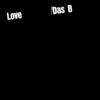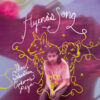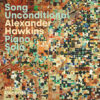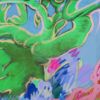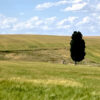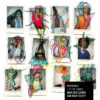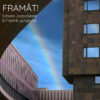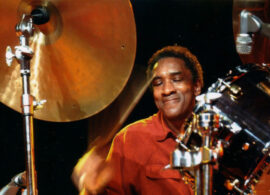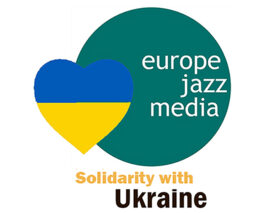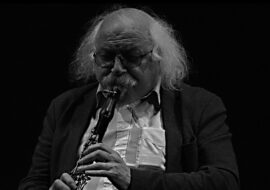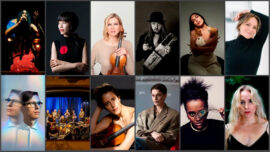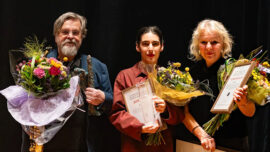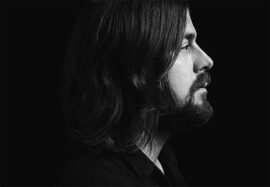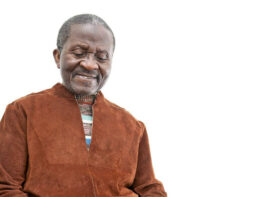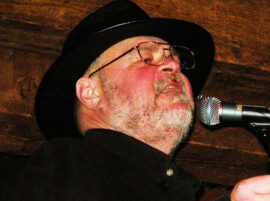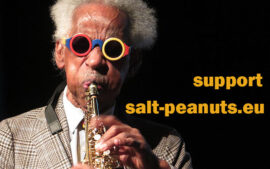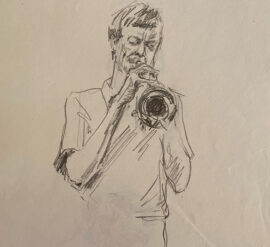
Splitter Orchester is a Berlin-based, international experimental ensemble of 24 of the most consistently creative, self-motivated and conceptually optimistic local musicians-improvisers. operated as a democratic collective with no leader. The ensemble reflects the cosmopolitan experimental scene of Berlin and draws inspiration from contemporary and free improvised music, but its musicians are also active in the free jazz, post-rock, sound art and electronics scenes. The Splitter Orchester was founded in 2010 and originated from the «Echtzeitmusik» scene, which emerged in Berlin in the mid-1990s.
The triple-CD splitter musik is the fourth album of Splitter Orchester and its first album that features the the ensemble’s own music, following previous collaborative albums with American composer-trombonist George Lewis (Creative Construction Set™, Mikroton, 2016), sound artist Felix Kubin (Shine On You Crazy Diagram, Gagarin, 2016) and the electro-acoustic quartet The Pitch (Frozen Orchestra (Splitter), Mikroton, 2018). Splitter Orchester’s work as a free improvising collective always involves risk-taking and is characterized by an inherent possibility of failure. It has always been a social experiment, questioning hierarchies of composer and interpreter, of work and event. Sonically and musically non-homogenous but still ensemble, a togetherness in difference. The three extended pieces of splitter musik capture faithfully the multi-faceted, adventurous and ever-shifting sonic organism that is Splitter Orchester.
The first piece «Vortex» was completely improvised and was recorded in November 2019 during the second Splitter Music festival in Silent Green, a former crematorium now turned into a concert venue in Berlin-Wedding, with the musicians positioned on the balconies of the circular chapel, while the audience was seated below. Splitter Orchester sounds like an organism in its most natural habitat sketching a delicate yet intriguing synesthesiac drone that slowly spirals up, with haunting cinematic passages that bring to mind images from David Lynch’s movies but concludes it with a meditative, peaceful coda.
The second «Imagine Splitter» is a conceptual, counter-intuitive sonic experiment suggested by clarinetist Kai Fagaschinski (of The International Noting, The Baldarian Quartet and The Elks) that could easily go wrong. Fagaschinski recommends giving this piece «uneducated» listening before reading more about it, but doubt if anyone would do so. He asked the musicians of the ensemble during the first phase of the Covid-19 pandemic to record themselves «solo» with the instruction: Imagine Splitter. The mysterious outcome offers a panoramic and unedited sonic sculpture of 22 musicians playing to themselves while imagining what it would sound like to play with the whole Splitter Orchester. Surprisingly, rarely it sound like a random amalgamation of individual gestures. It often sounds like a cerebral reflection about the essence of free improvisation -referring to aspects of group dynamics, interplay and interaction or tension building and release – that correspond profoundly with the aesthetics of the ensemble and suggest a few fleeting themes. But most of the time it sounds like a captivating, word collective experience, but like anything that may have happened in a live setting.
The third and last piece «PAS» is Splitter Orchester’s theatrical-environmental musical event and first-ever outside and site-specific performance in August 2020. It was performed on one side of the river Spree, on the docks of the venue Petersburg Arts Space in Berlin Moabit, while the audience was listening from the opposite side, where a single pair of stereo microphones was placed. This piece is a collective improvisation augmented by compositional ideas by percussionist Burkhard Beins, Fagaschinski, inside-the-piano player Andrea Neumann, flutist Sabine Vogel, clarinetist Chris Heenan, trumpeter Liz Albee, and sound artist Marta Zapparoli as well as (in)voluntary collaboration with the field sounds and disturbances of the surrounding: dogs barking, boats crossing, kids laughing, beer bottles popping, water squelching, ducks singing, the wind and of course the characteristic searching for one another in the midst of the music, as the sense of foreground and background is constantly shifting and often totally blurred. Neumann and Albee designed a colorful map of the development of this imaginative, poetic and surprisingly playful piece in the accompanying booklet.
Describing the music of Splitter Orchester as unique is redundant. This ensemble constantly challenges us to rethink, recalibrate and reimagine the way we listen, process and interpret sounds, sonic textures and music at al, with no comforting answers but with a promise to do so within fascinating sonic journeys.
Eyal Hareuveni
Liz Allbee (trumpet), Boris Baltschun (analog synthesizer), Burkhard Beins (percussion), Anthea Caddy (cello, electric bass), Anat Cohavi (clarinet), Mario de Vega (electronics), Axel Dörner (trumpet), Kai Fagaschinski (clarinet), Robin Hayward (tuba), Steve Heather (percussion), Chris Heenan (contrabass clarinet), Mike Majkowski (double bass, electronics), Magda Mayas (clavinet, harmonium), Matthias Müller (trombone), Andrea Neumann (inside piano, mixer, hydrophones), Morten Joh (percussion), Simon James Phillips (organ, piano, Korg CX3), Jules Reidy (guitar), Ignaz Schick (electronics, turntables), Michael Thieke (clarinet), Clayton Thomas (double bass), Sabine Vogel (flutes, hydrophones), Biliana Voutchkova (violin), Marta Zapparoli (tape decks, hydrophones, radio receivers, antennas)

